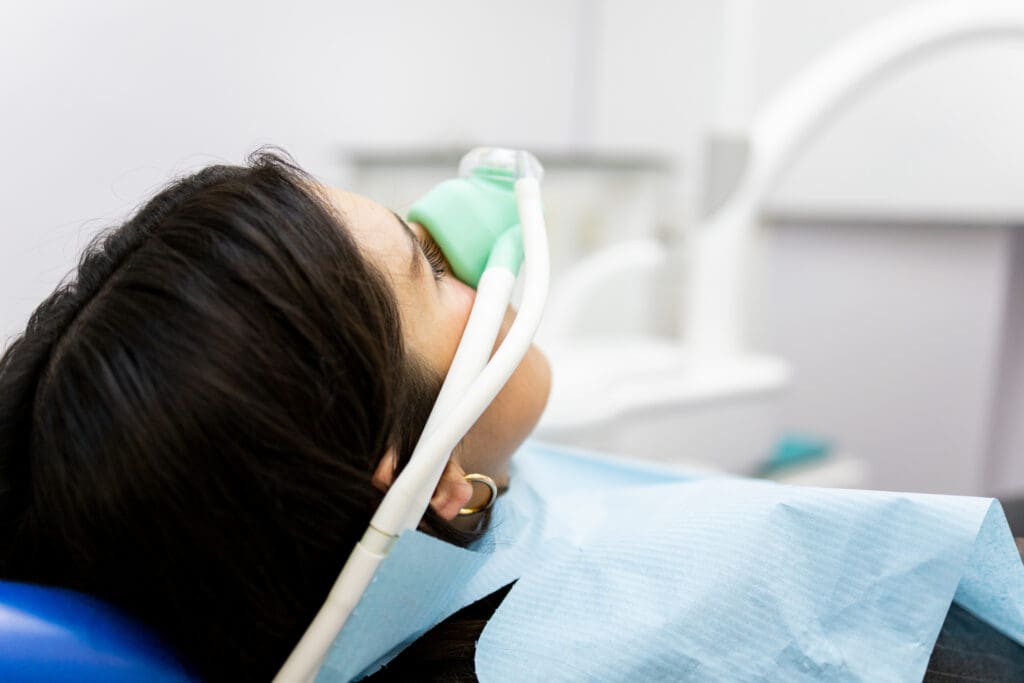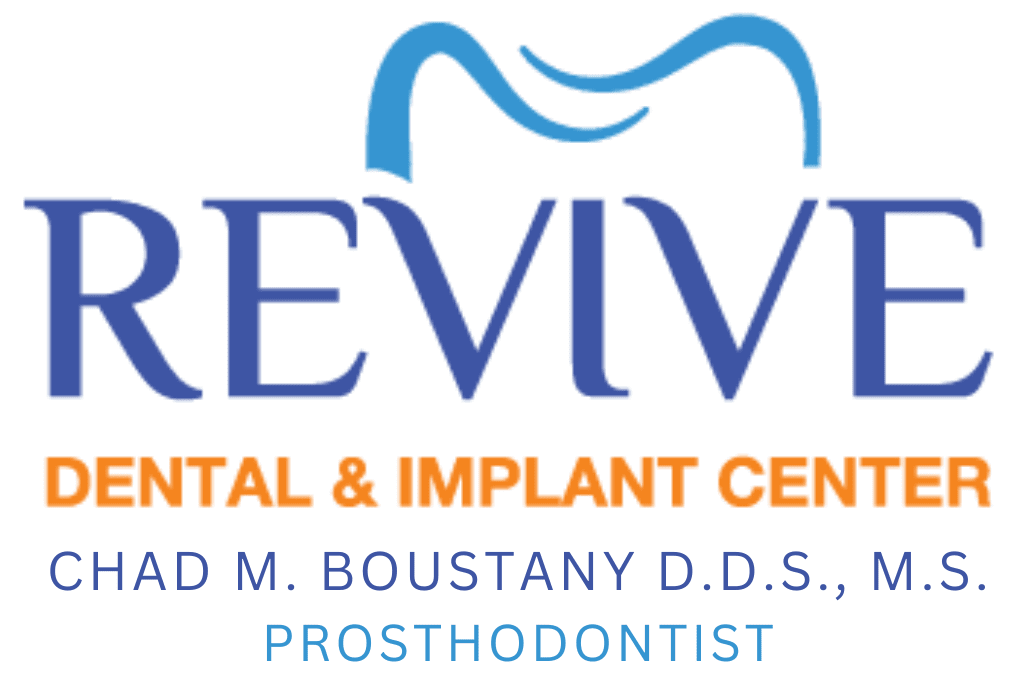What Is Dental Sedation?
Dental sedation helps patients feel relaxed and comfortable during dental procedures. Many people feel nervous about going to the dentist. Some procedures might be uncomfortable or take a long time. Sedation can help make these visits easier for both patients and dentists.
Sedation is different from pain medicine. Pain medicine (like the numbing shots dentists use) stops you from feeling pain. Sedation helps you feel calm and relaxed. Most of the time, dentists use both sedation and pain medicine together to keep you comfortable.
Dental sedation can help if you:
- Feel scared or anxious about dental visits
- Need a long or complex dental procedure
- Have sensitive teeth or a strong gag reflex
- Have trouble sitting still for long periods
- Need multiple procedures done in one visit
Dr. Boustany is one of few dentists in Charleston, WV, certified in IV sedation. This advanced training and certification enables our team to provide comprehensive sedation dentistry and to meet the varying needs of our patients. We want to be sure that every patient is able to feel comfortable, relaxed, and safe when receiving dental treatment in our Charleston dental office.

Types of Dental Sedation
The best sedation choice depends on your anxiety level, the dental procedure you need, your health, and your personal preferences. Dr. Boustany will speak with you about your medical history, concerns and fears. He can recommend the right level of sedation to keep you safe and comfortable during your procedure.
Nitrous Oxide (Laughing Gas)
Nitrous oxide is a mild form of conscious sedation that you breathe in through a small mask over your nose. You will stay awake during your dental procedure. It’s sometimes called “laughing gas” because it can make you feel happy and giggly.
What to expect: A small mask is placed over your nose. You can breathe normally and will start to feel relaxed within a few minutes. You stay awake and can talk to our team, but you’ll feel calm and maybe a little sleepy. The effects wear off quickly once the mask is removed. You can drive yourself home after nitrous oxide sedation.
Benefits: Nitrous oxide works quickly, wears off fast, and has few side effects. It’s good for mild to moderate anxiety and shorter procedures. It’s safe for most people, including children.
Oral Sedation
Oral sedation involves taking a pill before your dental procedure. The prescribed sedative helps you feel relaxed and drowsy, but you will stay awake the whole time.
What to expect: Dr. Boustany will prescribe a sedative to take at home about an hour before your appointment. You’ll feel drowsy and relaxed but will stay awake. You might not remember much about the procedure afterward. The effects can last several hours, so you’ll need someone to drive you to the office and home.
Benefits: Oral sedation is easy to use because all you have to do is swallow a pill. It provides deeper relaxation than nitrous oxide and is good for moderate anxiety or longer procedures. No needles are needed, which many patients prefer.
IV Sedation
IV (intravenous) sedation means medicine goes directly into your bloodstream through a tiny needle in your arm or hand. This type of sedation works quickly and can be adjusted during your procedure.
What to expect: A small needle will be placed in your arm to deliver the sedation medicine. You’ll feel deeply relaxed and may drift in and out of sleep, but you can still respond to our team if needed. Most patients don’t remember much about their procedure afterward. The effects take longer to wear off, so you’ll need someone to drive you home and stay with you for a few hours.
Benefits: IV sedation works very quickly since it goes right into your bloodstream. Dr. Boustany can control the amount of sedation throughout the procedure, making it stronger or lighter as needed. It’s excellent for severe dental anxiety, complex procedures, or longer appointments.
Benefits of Sedation for Oral Surgery
Oral surgery includes invasive procedures like wisdom tooth removal, placing dental implants, bone grafting, jaw surgery, or treating serious infections. Sedation is especially helpful for these types of treatments.
Sedation for oral surgery helps in many ways, benefiting both the patient and the dental care team.
- Comfort during complex procedures: Oral surgeries can take longer and be more involved than regular dental work. Sedation helps you stay comfortable throughout.
- Less movement: When you’re sedated, you’ll stay still, which helps our dental care team work more precisely and safely.
- Better anxiety control: Surgeries can cause more worry than regular dental visits. Sedation helps manage this extra anxiety.
- Memory effects: Many patients prefer not to remember surgical procedures. Sedation often creates temporary memory loss about the treatment.
- Fewer appointments: With sedation, we can often do more dental work in one visit, meaning fewer trips to the dentist.
What To Expect Before, During, and After Sedation
Before Sedation
Dr. Boustany will review your health history to make sure sedation is safe for you. He will explain the type of sedation recommended and give you instructions to follow if needed.
You may need to:
- Not eat or drink for a certain number of hours before your appointment (especially for IV sedation)
- Arrange for someone to drive you to the office and home after moderate or deep sedation
- Wear comfortable, loose-fitting clothing to your appointment
During Sedation
During your procedure, the dental team will closely monitor your breathing, heart rate, and blood pressure. You’ll feel relaxed and comfortable. Depending on the type of sedation, you might feel sleepy or very relaxed, but you will still be able to breathe on your own.
For IV sedation, Dr. Boustany will adjust the medicine as needed to keep you at the right level of sedation. We will also use numbing medicine (local anesthetic) so you won’t feel pain during the procedure.
After Sedation
After your procedure, you’ll need time to recover from the sedation. With nitrous oxide, you’ll feel normal again within minutes. With oral or IV sedation, recovery takes longer.
Recovery tips:
- Rest for the remainder of the day
- Don’t drive, use heavy machinery, or make important decisions for 24 hours
- Stay hydrated by drinking water
- Follow all after-care instructions
- Call our office if you have questions or concerns
Is Dental Sedation Safe?
Dental sedation is generally very safe when provided by trained professionals. Dr. Boustany will check your health history and current medications to make sure the sedation he recommends is right for you.
For deeper sedation like IV sedation, special monitoring equipment tracks your vital signs throughout the procedure.
Remember to tell us about:
- All medications and supplements you take
- Any health conditions you have
- Previous reactions to anesthesia or sedation
- Allergies to medications
Dental sedation has helped many patients get the dental care they need without fear or discomfort. If dental anxiety has kept you from seeking the dental treatment you need, sedation might be the solution that helps you maintain good oral health. Contact Revive Dental & Implant Center to explore your treatment options and discuss the benefits of dental sedation.
